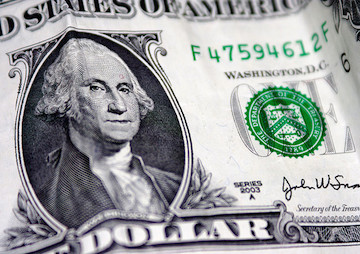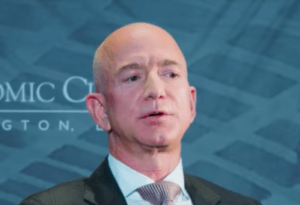20 U.S. Billionaires Now Own as Much Wealth as Half of All Americans
A new report reveals that the real wealth gap in America is not between the 1 percent and the 99 percent, but between the .0001 percent and everybody else. c_ambler / CC BY 2.0
c_ambler / CC BY 2.0
A new report from the Institute for Policy Studies shows that the richest 400 Americans have a combined net worth of $2.34 trillion, which is equal to that of the bottom 61 percent of the U.S. population, or about 194 million people.
According to the report, “Billionaire Bonanza: The Forbes 400 and the Rest of Us,” a mere 20 individuals now control more wealth than the bottom half of the population: 152 million people living in 57 million households. Explaining that the distribution of wealth in America no longer resembles a pyramid, but is more like Seattle’s Space Needle, the report states, “the higher up you go up our contemporary wealth ladder, the greater the imbalance.”
From The Nation:
And there’s a stark racial divide at the top. The 100 richest households own more assets than the entire African-American community (there are just two black people on the Forbes 400 list, one of whom is Oprah Winfrey). And just 182 individuals on the Forbes list have more assets than America’s entire Hispanic population.
But Chuck Collins, director of IPS’s Program on Inequality and the Common Good and a co-author of the report, tells The Nation that their study likely underestimates the scope of the problem. “Our wealth data is a tip of the iceberg,” he says. “So much wealth among the über-rich is hidden, either in offshore tax havens or in these loophole trusts where money is shuffled around into private corporate accounts or between different family members, and it disappears from taxation or any sort of oversight or accountability. So there’s a huge amount of escaped wealth that isn’t even factored into these statistics.”
And Collins says it’s only getting worse. “These inequalities really undermine our quality of life,” he says. “We need to explain to people who say ‘So what, I don’t care how much the Forbes 400 has’ that it really does touch on all of our lives, deeply and profoundly.”
It’s only when you look past the numbers that the scope of the problem comes fully into focus. A 2009 study published in the British Medical Journal compared income inequality (which is less extreme than wealth inequality) in the United States and 14 other wealthy countries, and found that our skewed income levels corresponded with 893,914 avoidable deaths per year compared with those other economies. That’s more unnecessary deaths than are associated with tobacco use, car accidents, and gun deaths combined.
Stephen Bezruchka, a professor of public health at the University of Washington, told me in an interview last year that stress is a key driver of those outcomes. “What happens is those lower down the economic ladder experience more stress,” he said. “They secrete more stress hormones until they’re burned out. Stress is our 21st-century tobacco.”
A recent study by Princeton economists Angus Deaton and Anne Case found that the mortality rate among white, middle-aged Americans with limited education is increasing, while those of every other group—and the citizens of every other advanced country—continue to fall. The increase in deaths among this group is attributable to what The New York Times described as “an epidemic of suicides and afflictions stemming from substance abuse: alcoholic liver disease and overdoses of heroin and prescription opioids.” One theory, offered by Sam Pizzigati, is that this population suffers from “thwarted aspirations,” having been raised with expectations of upward mobility that never came to fruition.
Read more here.
SEE ALSO: Karl Marx Was Right by Chris Hedges
–Posted by Roisin Davis
Your support matters…Independent journalism is under threat and overshadowed by heavily funded mainstream media.
You can help level the playing field. Become a member.
Your tax-deductible contribution keeps us digging beneath the headlines to give you thought-provoking, investigative reporting and analysis that unearths what's really happening- without compromise.
Give today to support our courageous, independent journalists.





You need to be a supporter to comment.
There are currently no responses to this article.
Be the first to respond.